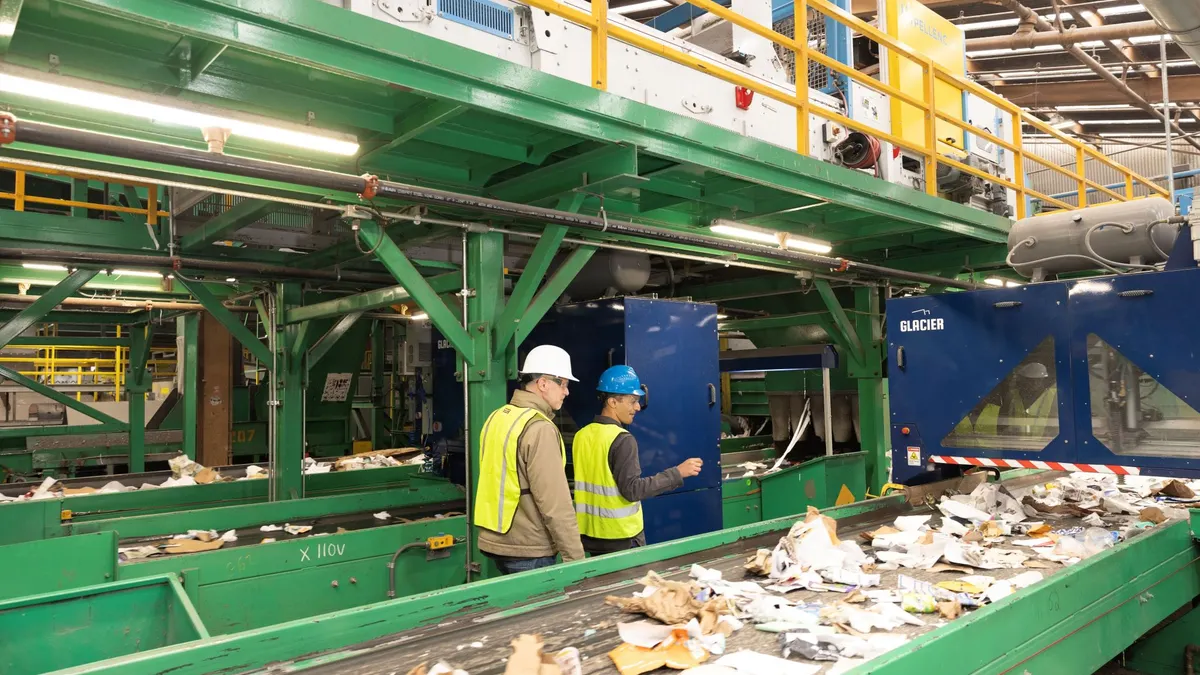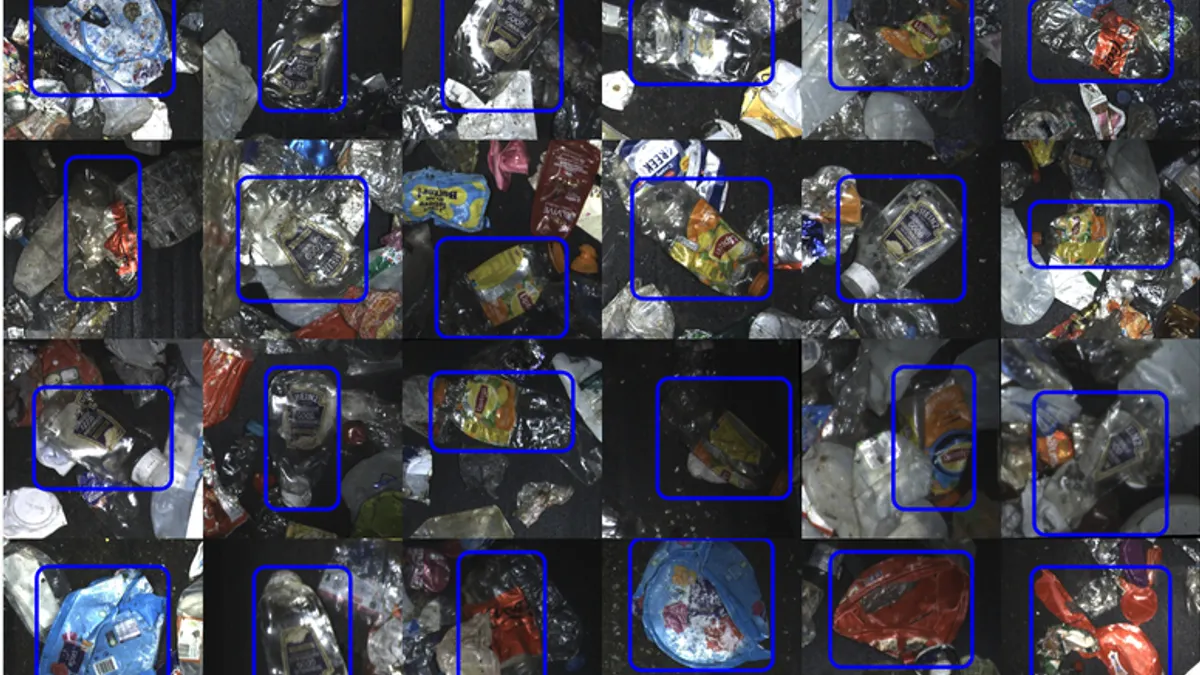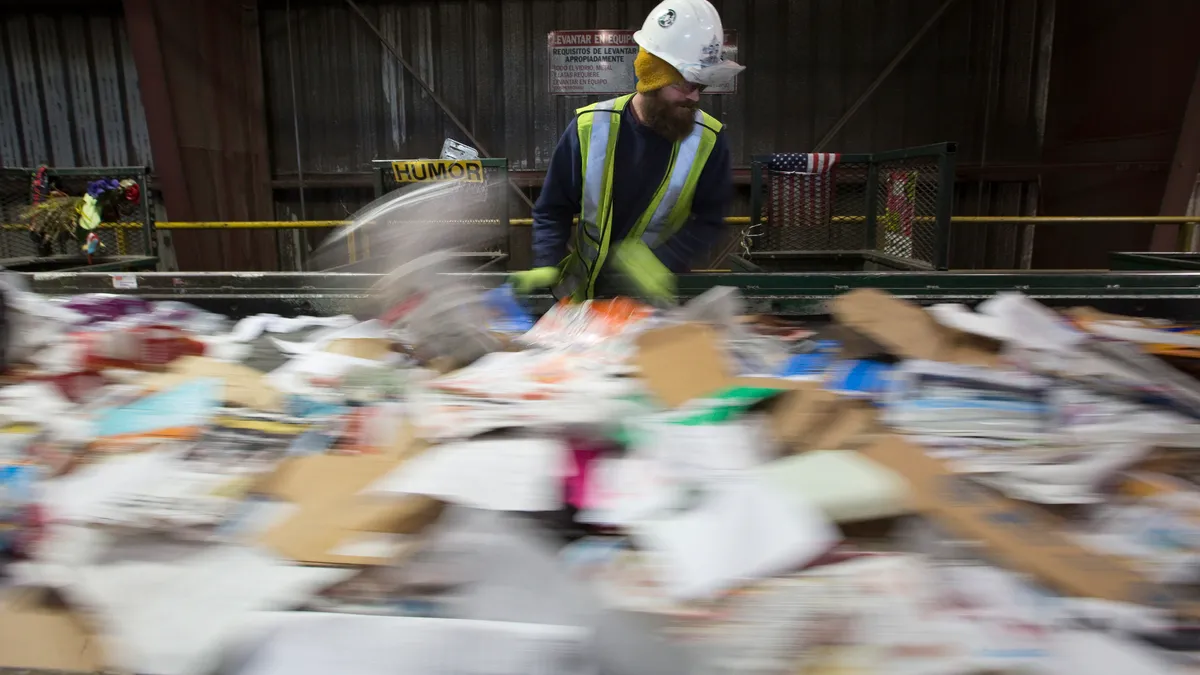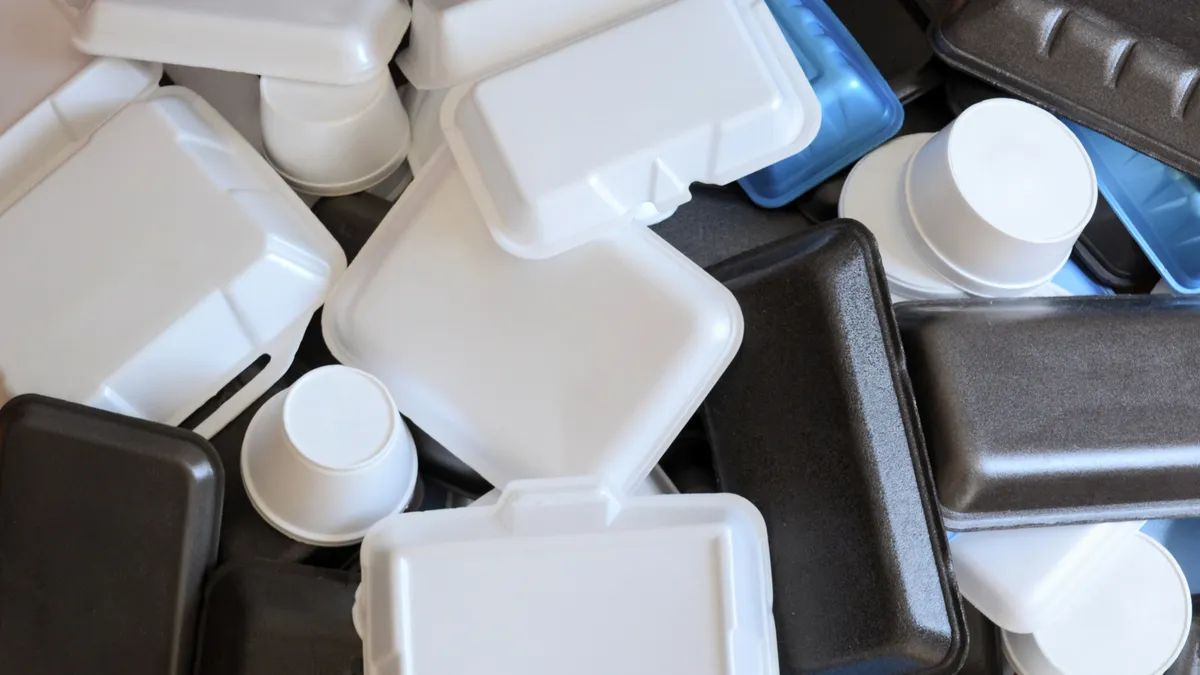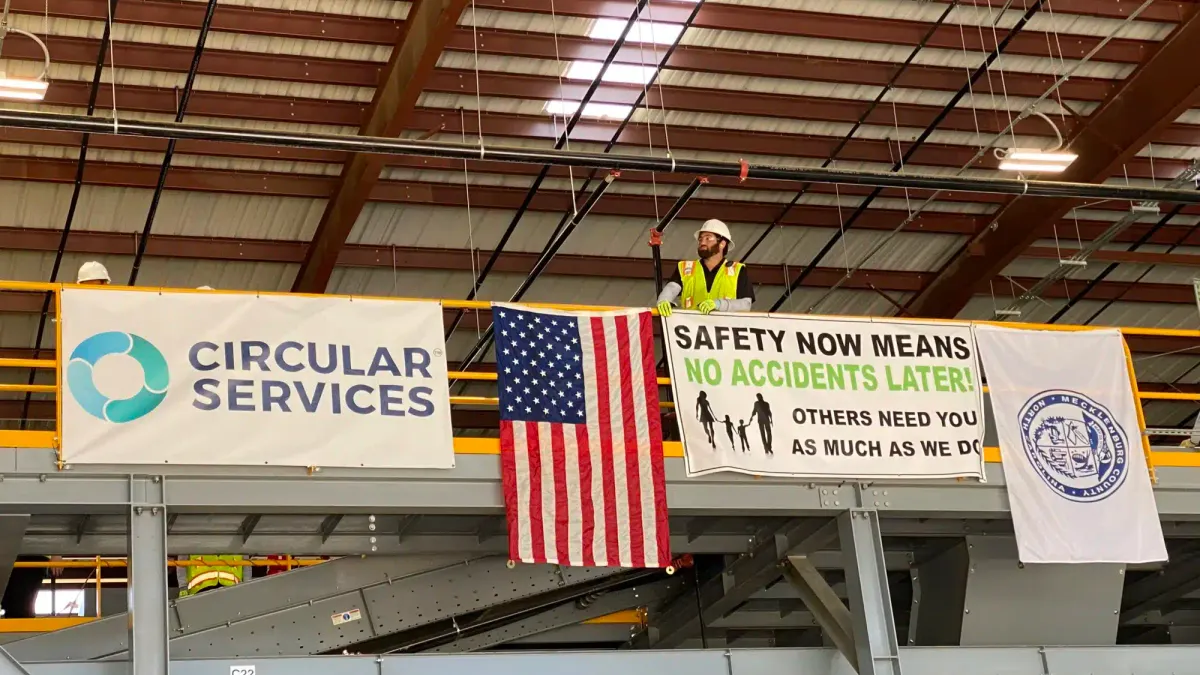Welcome to Scrap Collector, Waste Dive's Friday round-up of insights and stories you may have missed during the week.
REPORT: PLASTIC IS "A GLOBAL HEALTH CRISIS HIDING IN PLAIN SIGHT"
A new report released Tuesday aims to present a holistic view of the "significant, complex, and intersecting" effects of plastic on human health. While research into plastic's toxic consequences tends to converge around specific products, processes or exposure vectors, Plastic & Health: The Hidden Costs of a Plastic Planet seeks to explore the health risks accompanying every stage of the plastic lifecycle — "from wellhead to refinery, from store shelves to human bodies, and from waste management to ongoing impacts as air, water, and soil."
According to the report — authored by the Center for International Environmental Law (CIEL), Earthworks, Global Alliance for Incinerator Alternatives (GAIA), Healthy Babies Bright Futures (HBBF), IPEN, Texas Environmental Justice Advocacy Services (t.e.j.a.s.), University of Exeter and UPSTREAM — plastic poses "distinct risks to human health" at virtually every phase of its protracted existence. Among the key findings:
-
Extraction and transportation of fossil feedstocks for plastic, as well as refinement and production of plastic resins and additives, release "highly toxic" substances associated with cancer, reproductive and developmental problems, neurotoxicity and other negative health outcomes.
-
Contact with consumer products and packaging can lead to ingestion and/or inhalation of microplastic particles and hundreds of potentially harmful substances. Fragmentation, microplastics and cascading exposure from degradation have been linked to various health and environmental effects.
-
Plastic waste management — especially incineration — releases heavy metals (e.g., lead and mercury), acid gases and particulate matter, and other toxic substances into air, water and soil, jeopardizing the health of workers and nearby communities.
-
Plastic contamination and accumulation in food chains result in ever-increasing opportunities for human exposure.
"Both the supply chains and the impacts of plastic cross and re-cross borders, continents, and oceans. No country can effectively protect its citizens from those impacts on its own, and no global instrument exists today to fully address the toxic life cycle of plastics," said David Azoulay, CIEL's Director of Environmental Health. "Countries must seize the opportunity of current global discussions to develop a holistic response to the plastic health crisis that involves reducing the production, use, and disposal of plastic worldwide."
IN OTHER NEWS...
EPA apparently stole music from Yoshi's Island DS for its recycling game — Ars Technica
For those of you who haven't gotten around to playing the EPA's Recycle City Challenge Web game (and I'm going to assume that's all of you), here's the basic premise: players go around a city answering questions about waste and energy reduction, such as "What can the café do to reduce the amount of food it's throwing out?" "How can we reduce greenhouse gas emissions in our community?" and "How do I use a copyrighted 2006 Nintendo video game earworm in my educational flash game without obtaining permission?"
Uh, yeah — the EPA, true to scandal-prone form, apparently stole music from Nintendo's Yoshi's Island DS for its educational Flash game. For those of you who spent your childhoods, I don't know, reading, here's the tune:
The music was reportedly removed from the live version of the game, but you can still check out this Internet Archive copy for comparison.
The EPA — which, in all fairness, probably didn't expect anyone to actually play the game — has since confirmed the unexpected presence of Yoshi on its site.
"The Recycle City Challenge game was created for EPA by a contractor," a spokesperson told Ars Technica. "We are looking into whether the contractor received permission to use the music, to the extent permission was necessary in this instance."
According to Cornell Law Professor James Grimmelmann, this probably won't spiral into a major legal disaster for the agency: "I think Nintendo would be satisfied if they pulled the game and replaced it and apologized."
Yoshi, on the other hand? Probably has a few especially solid eggs to throw in the EPA's general direction.
AROUND THE WORLD
Canada refusing to sign Basel Convention amendment — Regina Leader-Post
Loyal Scrap Collector readers might remember last week's update on the 77 containers of illegal Canadian waste currently festering in Filipino ports — and how Aileen Lucero, national coordinator of the EcoWaste Coalition of the Philippines, highlighted perhaps the one positive outcome of the five-year standoff.
"The Canadian garbage dumping scandal has stirred a broad movement opposed to foreign waste dumping in the Philippines," she said. "It underscores the need for our government and others to ratify the Basel Ban Amendment, which seeks to prevent the transfer of hazardous waste from developed to developing countries for any reason, including recycling and disposal."
Turns out Lucero may have been overly sanguine on that count. Despite facing mounting pressure from environmental groups both in the Philippines and abroad, Canada is maintaining its refusal to sign on to the Basel Convention amendment. Proposed in 1995 as a way to further address waste challenges faced by developing countries, the amendment seeks to ban all shipments of hazardous waste — including waste labeled as recycling. Only two more countries need to sign on for its adoption to be approved.
Canada, however, is standing its ground, maintaining that there are "positive consequences to environmentally sound recycling and recovery operations." According to Kathleen Ruff, founder of the Rideau Institute public advocacy campaign RightOnCanada.ca, the amendment would have barred Canada from shipping those 103 containers to Manila back in 2013 and 2014; as it stands, Canadian Prime Minister Justin Trudeau has continued to demur on the matter of reclaiming the waste.
Parties to the Basel Convention are set to meet this April in Switzerland, where the amendment will once again be on the docket for discussion.
SEEN & HEARD
Our nearly 700 salt spreaders were working through the day citywide, and will continue working through the night, addressing snowy and icy conditions. pic.twitter.com/FxHlzmj0Vk
— NYC Sanitation (@NYCSanitation) February 20, 2019
Up today — an interview I did with Richard Bright @InteraliaCentre on #plasticspollution, #creativenonfiction and why #envhist. Here’s the link for those interested in reading:https://t.co/DGH14gbQ92 pic.twitter.com/U8HBRiCELq
— Rebecca Altman (@rebecca_altman) February 18, 2019
Yes we found Lego but here's what else we found during 8 hours of picking up plastic from 1 Cornish cove, all washed up with seaweed from the seabed last week. 1097 bottles/fragments, 158 bits of broken net float, 74 goggles/glasses & 32 shoes. And we barely scratched the surface pic.twitter.com/CQFJE53QjE
— Lego Lost At Sea (@LegoLostAtSea) February 20, 2019







